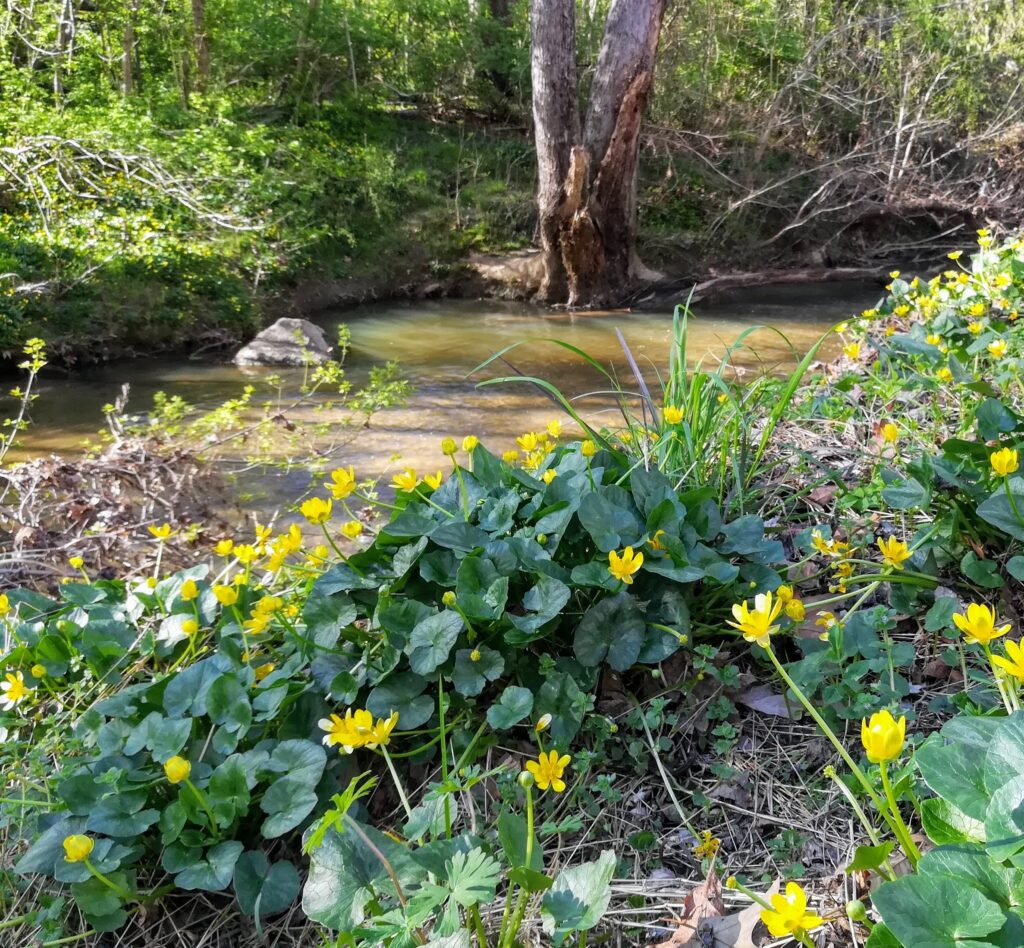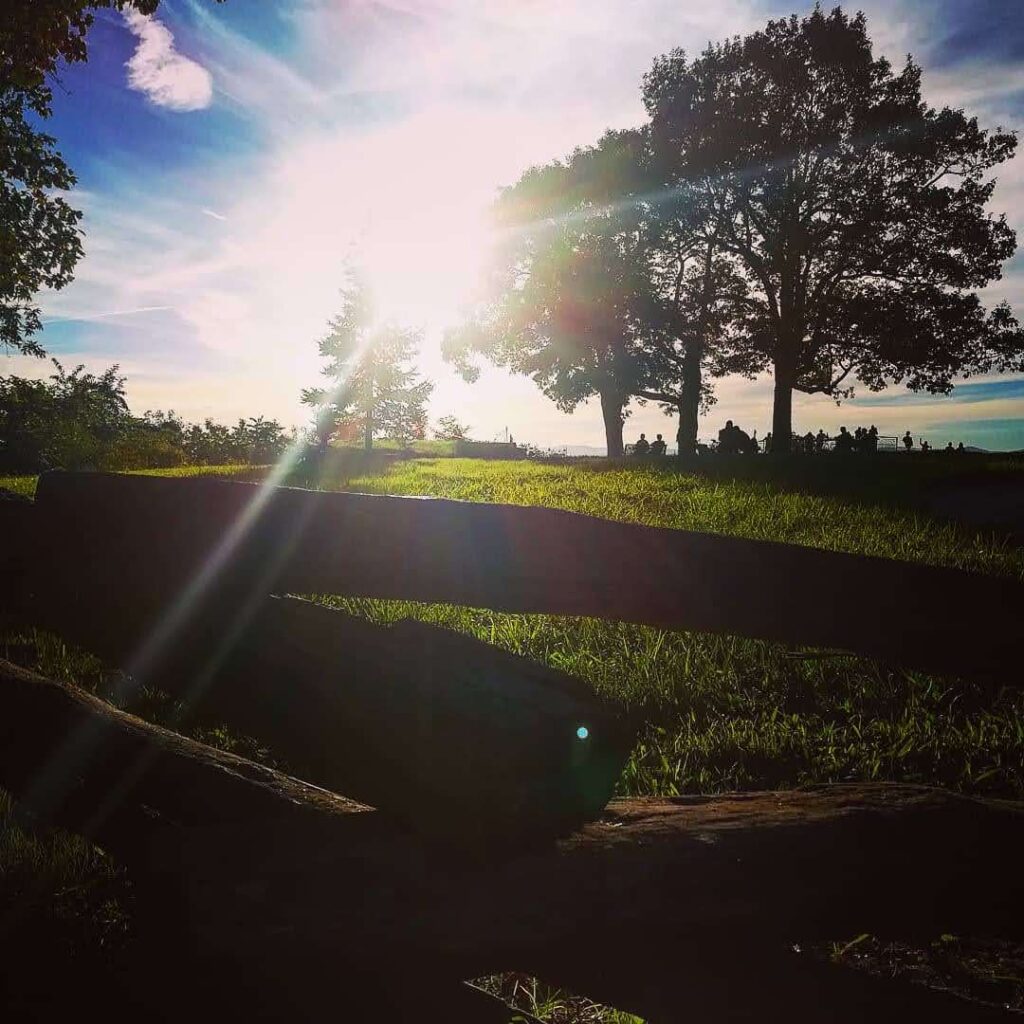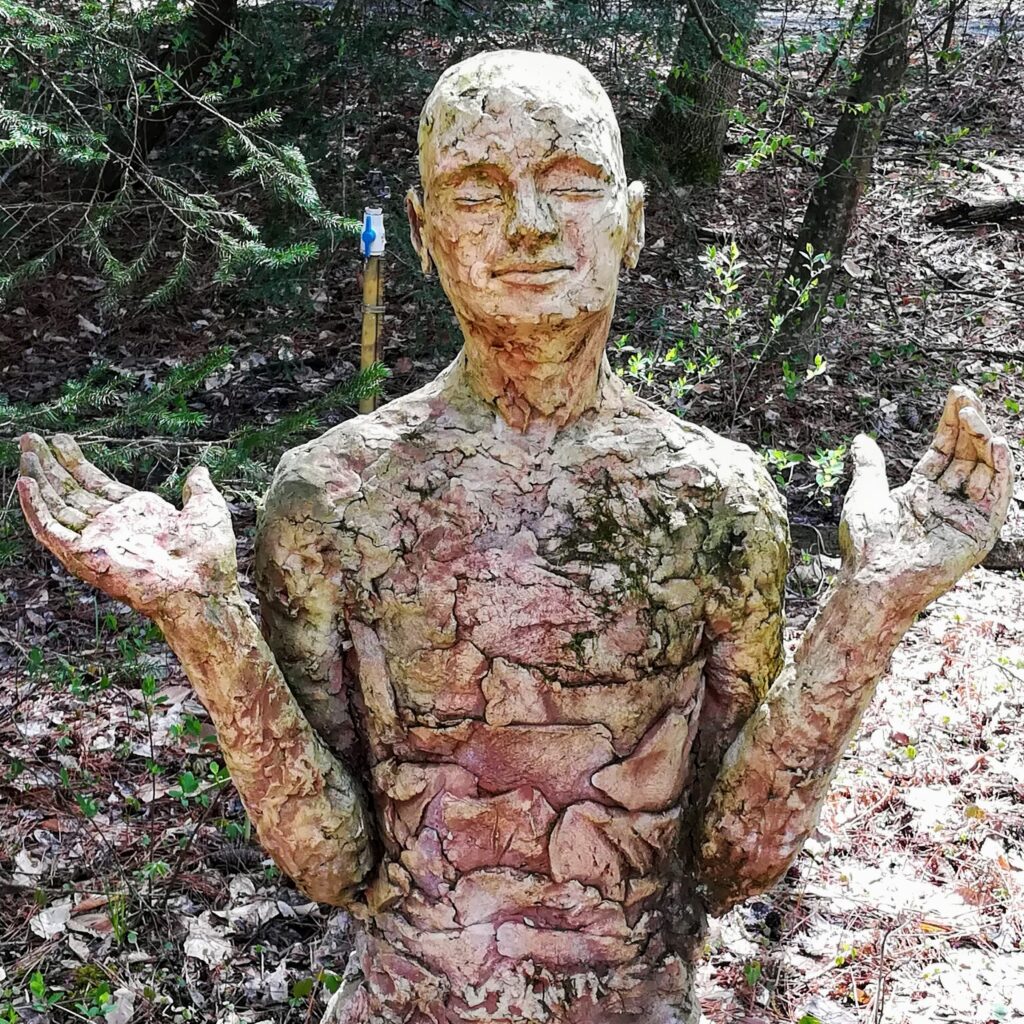Spring is in the air. The earth is transforming. Flowers rise from the ground and blooms grace the trees. The birds return and rabbits and squirrels frolic again in backyards. Spring arrives early or late, is long or short, but it always comes. Human transformation is less predictable but always possible and just as magical. The story often unfolds like this.

There was a shepherd who had a modest piece of land with a gentle stream on which he raised sheep and eked out an existence. He would often eat a meal by the stream, usually some bread and fruit. He would then feed the peels to the sheep and throw away the seeds. He’d then take the sheep up the hills to forage.
One day, he heard a neighbor had discovered a diamond on his land and had become quite wealthy. The poor shepherd was suddenly consumed with desire for such wealth. He consulted a seer who told him that he too would find a field of jewels. Where is this field? asked the shepherd eagerly. I don’t know, said the fortune-teller but I can see a rushing stream and a grove of fruit trees there. There was only a small slowly moving stream on the shepherd’s land and no fruit trees at all so he decided that his treasure lay elsewhere.
He sold his sheep and set out. He traveled across the country, sleeping under the stars, digging for jewels where he found streams and fruit groves, and doing odd jobs in towns and farms to get by. Years passed and then decades and he grew old but also wise from his travels and hardships. Increasingly, he found himself pulled less by the search for the stones than the places where scholars gathered. With countless nights spent alone under the stars and quiet afternoons in the shade of trees, he contemplated the mysteries of all he saw, the struggles of people, the wonders of nature and life, and felt gratitude, calmness, and compassion increasingly fill his soul.
In the towns he passed through, he became renowned as a storyteller and teacher for the tales of places he’d been, his adventures and encounters, and the learning he gained and shared. Many people pressed coins into his hands in appreciation. Finally, he decided to return home with the money he gathered so he could buy a few sheep and spend his remaining days quietly as he once did. On returning to his land he found that the stream had grown into a fast-moving current and the seeds he had thrown away were now a large grove of fruit trees. Suddenly the mystery of the hidden treasure was revealed to him!

He used the money to build a small school on the land and took up the role of a teacher freely sharing all he had learned from his journeys. Soon, many scholars and artists traveled from distant lands to study there and reflect with others under the shade of the fruit trees and the sparkling stream. On the field they built beautiful structures which they graced with art. The scholars then journeyed out to set up new centers of learning, carrying forth the teachings of the shepherd and the jewels of wisdom they had found on his land.
As in this quest, the treasure we seek is often right there, only hidden. It is we who need to change to see it. The famous quote by Proust says that the real voyage of discovery is not traveling to distant lands but seeing with new eyes. Yet, we often need to travel afar to gain perspective and see possibilities in a fresh way.
Story after story traces this arc of transformation. Joseph Campbell called the pattern the hero’s journey. It goes like this: The hero lives an ordinary life but life is upended with a crisis. He or she is forced to head into the unknown on a quest to save the situation. She/he encounters many struggles, some that are life-threatening. The hero prevails often with the help of a guide, He/she is transformed in the process. The crisis is averted and the hero returns home, a new person with a new way of being.
This story of adventure is glamorous in hindsight but often agonizing at the outset. Yet the big payoff is growth, the real treasure. As Edmund Hillary who was first to summit Everest put it: “It is not the mountain we conquer, but ourselves.”

The stories I tell in this blog are about people who have made this journey. They were not necessarily born that way but were shaped by life’s difficulties much like the shepherd. They used their learning to create good in the world for others. In the end, this manifestation of our potential is the greatest treasure. It is ours to find if we are willing to journey from the comfort of home, embrace the unknown, open our minds, and lift our hearts. In this quest, we may find revealed to us the best of what we might be and become.

I am reminded of another ‘hero’ journey, when Dorothy insightfully says, “If I ever go looking for my heart’s desire again, I won’t look any further than my own back yard. Because if it isn’t there, I never really lost it to begin with.” Thank you Lyndon for the reminder that the search for happiness outside of your own self is futile.
That’s a great quote, Nancy! Thanks for sharing.